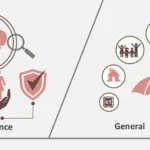Table of Contents
ToggleUK Life Insurance
Life insurance is a type of insurance that pays a lump sum if the insured dies. Life insurance is typically sold to cover the cost of funeral and other expenses in case the insured person dies.
The UK life insurance market has been growing at a steady rate for many years. The growth can be attributed to an ageing population and an increasing number of people taking out life insurance policies as they retire or think about starting a family.
Benefits of Life Insurance - How to Actually Buy and Claim on a UK Life Insurance Policy
Life insurance is not something most people think about buying, but it offers significant benefits to those who do.It is typically used for financial protection against the risk of dying or becoming permanently disabled before reaching retirement age. Here are the top benefits it has:
- It helps in managing your finances, especially if you have an estate to manage and children.
- It also helps in reducing your tax burden and can help you plan for the future.
- It covers your dependents and other members of your family in case you die.
- It can also be used to cover costs associated with the death, such as funeral expenses and debts incurred by the deceased person, as well as medical expenses for surviving family members.
In the UK, there are several different types of life insurance policies available for people from different age groups and professions. Some are more suitable for certain people than others, depending on their needs and risk levels.
What are the different types of policies and protection offered by UK Insurance?
In the UK, there are a variety of policies and protection offered by insurers. It is important to know what these policies are so you can make your own decisions about which one is best for you.
The following are the most common types of policies:
- Life Insurance: This is a contract between the life insurer and the insured person that provides for payment in case of death or for a specified period after death
- Home Insurance: This is a contract between the homeowner and an insurer that provides for payment in case of damage to or destruction of property
- Car Insurance: This is a contract between an insured person (the driver) and an insurer that provides for payment in case of loss or damage to property while driving
There are also travel insurance, personal accident cover and many more.
How to Calculate Your Premium Cost & Annual Premium?
Premium Cost: Premium cost is the cost of a single premium. It is the amount you pay for your subscription.
Premium Cost per Month: Premium cost per month is the amount you pay for your subscription every month. It is calculated by multiplying the premium cost by number of months in a year.
Annual Premium: Annual premium is how much you will be paying for your subscription every year. It’s calculated by multiplying the annual premium by 12 months in a year.
Premium cost is the amount that you pay for your insurance policy. Depending on the type of insurance policy, it can be a fixed amount or a percentage of your premium.Annual premium is the total amount that an insurance company charges its policyholders in one year.
Premium cost is calculated by multiplying the annual premium by the number of years covered by your insurance policy and Annual premium = Premium cost x Number of years covered.
Summing up:
The UK life insurance is designed to provide financial security in case of death, disability or retirement. It can be used to provide income for dependents, and it can reduce the impact on family members after the insured person’s death.
UK life insurance policies are usually cheaper than other types of insurance policies because they are often offered with no medical examination required and there are no medical conditions which exclude you from taking out a policy.
The UK Life Insurance market is worth £1,814 billion and there are over 10 million policies in force across all ages.
Some of the benefits include:
- A competitive price
- Free cash plan
- Life assurance cover
- Cover for your partner, children, or dependents
















